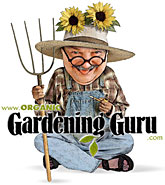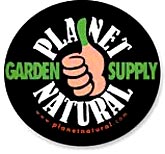I remember two things in particular about the first time a friend showed me a book on composting: first of all, I was dumbfounded that anyone could find enough to say on the topic to fill a book; and secondly, I had no temptation to read it.
How things change. I’ve now read several books and probably hundreds of articles on composting, and I find the topic endlessly engrossing. So much so that I’ve added my own book-length article to the stack. (Check out the green table of contents on the left at Composter Connection. Yeah, the one that kinda goes on and on.)
The thing is, once you do get interested in compost and actually try to learn about it in any detail, you realize how inadequate most web resources are. Over and over you’ll run into claims that compost “buffers soil pH” or that it “increases soil cation exchange capacity,” but you’ll almost always have to go to other sites in order to figure out what these things mean.
Cornell University’s composting site was a rare and welcome exception to this rule. It includes a remarkably thorough and readable treatment of compost science for the non-scientist as well as all sorts of more detailed scientific information for farmers and people with a real scientific background.
Its lead author and architect, Tom Richard, joins me this week from Penn State, along with his colleague Rick Stehouwer. Tom suggested that we include Rick when I said that I wanted to explore not just the science of composting, but what goes on when we use the stuff. Rick has written a four-part series of articles about what compost does in soil—chemically, physically, and biologically. These articles, published in BioCycle from 2003-4, are probably the best I’ve seen written for the intelligent layperson, for they’re both thorough and accessible.
This show, then, is for those of you with curious minds but not enough time. We couldn’t do the topic justice in an hour, but we did hit some high points. With luck, the program will whet some appetites.
Tom Richard
Director, Penn State Institutes of Energy and the Environment
Professor of Agricultural and Biological Engineering
Pennsylvania State University
Rick Stehouwer
Professor of Environmental Soil Science, Department of Crop and Soil Sciences
Pennsylvania State University
Cornell Composting Science and Engineering
—This may look impossibly intimidating, and indeed much of it is beyond the needs or abilities of most backyard composters. But check out the first section, “Background Information.” Its four pages—Invertebrates, Microbes, Chemistry, and Physics—cover a lot of territory, in accessible language.
Cornell Composting Fact Sheets
—Again, much of this is way more information than any backyard composter needs or wants, but the Home Composting section (fourth down) offers several useful downloadable files for the non-specialist.
Penn State Backyard Composting: http://extension.psu.edu/backyard-composting (downloadable pdf)
Penn State Composting Powerpoint Presentation: http://cropsoil.psu.edu/documents/stehouwer/composting2.ppt (downloadable pdf)
Soil Quality Fundamentals
—This is a four-part series by Richard Stehouwer. Originally published in BioCycle, these articles can be obtained free only by getting them through Highbeam’s 7-day introductory offer, so the links below are to Highbeam.
Part I: The Impact of Organics
Part II: Air and Water Essentials
Part III: Soil Chemistry and the Quality of Humus
Part IV: The Biology of Soils

 Subscribe to RSS feed
Subscribe to RSS feed



These tomoatoes are great!
Click Here!
Whole BOOKS? I think I’m feeling the exact same things you were when first hearing about this: dumbfoundedness and a cartain lack of temptation! However, it seems like your mind was changed, so.. your article would be good place to start?
Backyard composting is really benefits a lot, it promotes the recycling and reuse of yard trimmings, leaves, grass, kitchen scraps and other organic materials. Thanks for sharing such a wonderful article.